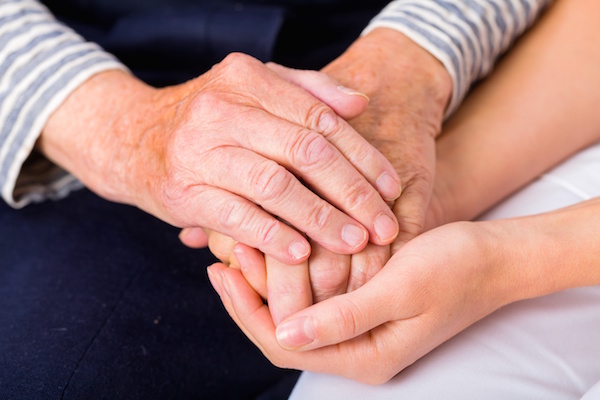
FRIDAY, Jan. 28 (HealthDay News) — Vailia Dennis says she is living proof that entering hospice doesn’t mean you die on anyone else’s timetable.
Dennis, 91, of Rancho Bernardo, Calif., signed up for hospice care 6½ years ago, after she was diagnosed with a fatal heart condition. At the time, she was told she’d have six months to live.
“The illness, the heart condition that I have, is one that should have and could have caused my death a long time ago, and just hasn’t done it up until now,” Dennis said. “Nobody knows why, and that’s OK by me.”
Dennis was 85 when her doctor gave her the bad news.
“The doctor wanted me to go in for open heart surgery,” she said. “I refused, and I thought it made a lot of sense. I’ve seen people my age go in for open heart surgery and, when they come out, they aren’t the same. They are more fragile.”
Dennis promptly called San Diego Hospice and signed up for its care. She already knew that hospice care was what she wanted and needed.
“I have had three members of my family die at hospice,” she said. “Hospice, to me, is like handing my problems to an angel. That’s the way I feel about hospice.”
Dennis still lives at home. Nurses and home health aides come by to check in on her condition and help her with household chores. A chaplain, one of her best friends, visits weekly.
“I didn’t want to leave my home,” she said. “My home’s my home. That’s where I’m staying.”
She does struggle with symptoms from her heart condition. She experiences lightheadedness and eye impairment, has a hard time catching her breath and suffers head pain. When the symptoms come over her, she says, she sits still and takes oxygen and, before too long, feels better. She also has sustained some short-term memory loss as the heart condition starves her brain of oxygen.
But she’s also having a lot of fun. She sits at her computer most days and writes recollections from her life. Other days, she’s visited by family and friends.
“People drop in or I get wonderful phone calls, and I’m enjoying my life,” Dennis said. “I’m not aware I’m doing that. It’s just the way it is.”
Hospice workers haven’t had to help her family deal with their feelings about her death yet, Dennis said, but knowing that hospice will be there for them once she’s gone is comforting.
“After death, hospice is so wonderful,” she said. “The family doesn’t become nonexistent after they’ve lost a loved one. There is loving care given to these people. When my uncle died, his wife sat by his bed and she would not leave his bed and would not stop holding his hand. They must have left her there for six or seven hours, with no one interfering.”
When asked her reflections on her own impending death, Dennis seemed genuinely surprised by the question.
“I haven’t even considered that,” she said, chuckling. “I just keep living. I haven’t considered it at all. There are no answers to why I keep going on, but I do. I know I am in the last stage of life, and that death is much closer than it has been. Am I frightened? No. Am I curious about what happens next? Yes — but I’m not afraid.”
“There is no reason to feel fear,” she said. “Fear only makes you unhappy. It destroys what could be a day or two of pleasure. There are real pleasures that do exist, even if you are dying.”
More information
A companion article offers information about hospice care.

